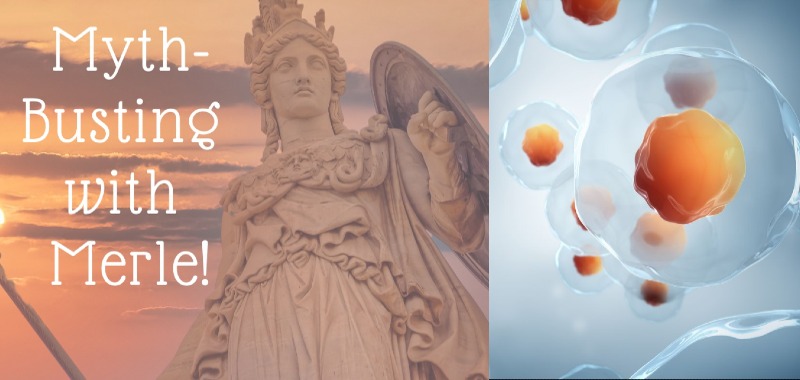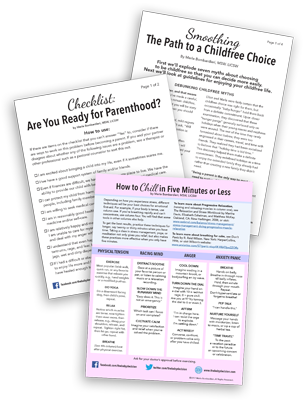
To kick off our new series called “Myth-Busting with Merle,” Merle addresses the common misconception that freezing your eggs will guarantee you more time to decide on whether or not to have a baby:
By Merle Bombardieri, MSW, LICSW
I’ve noticed that many of my conversations in coaching sessions, on Instagram, and in our “The Decision Cafe” private Facebook group for decision-makers, involve some form of myth busting. Clearing away a scary false assumption such as, “I have to be 100 percent sure before I call it a decision,” makes room in your mind for actual, reality-based decision making.
For this reason, I’m excited to offer a new series I’m calling “Myth-Busting with Merle.” The goal of the series is to help you (and your partner) choose wisely.
.
Myth #1: Freezing my eggs guarantees me more time to decide.
.
FALSE. While freezing your eggs is a potentially useful step in preserving your fertility, those eggs won’t guarantee you a baby. In fact, most women who freeze their eggs and become mothers never use a single frozen egg!
Let’s say you freeze eggs at age 29 and start trying at 35. Since fresh eggs have higher success rates than frozen, (if you have a male partner), your OB-GYN will tell you to start trying for pregnancy at home. You will use today’s fresh eggs, not the 29-year-old frozen ones! Even if you need fertility treatment, you’ll start with fresh eggs before heading to the freezer.
Single or partnered, gay or straight, your frozen eggs may never be more than a backup that was more useful for your peace of mind than for actual baby-making.
So how does this apply to my decision-making?
Short answer: frozen eggs do not guarantee a baby! However, starting to try at an earlier age might be a better bet. Choosing parenthood and trying as soon as you can, according to statistics, improves your chances. While you may be lucky and get and stay pregnant at 39 or 41, you can’t count on that. To protect your fertility, consider the timing of trying, not just egg freezing.
Here’s the lowdown on egg freezing:
It costs $10,000 or more per cycle, and most women must do two cycles to get an ideal number of eggs. Insurance is unlikely to cover it.
Storing frozen eggs is also expensive!
If you go to a clinic for an evaluation, make sure you get the necessary testing and consultation to have a reasonable expectation of success. Typically, women in their twenties have better egg quality and retrieve more eggs than older women. It’s ideal to get a second opinion from a fertility specialist not affiliated with your clinic, with no financial interest in your choice.
What questions do you have?
.
Let’s talk. I want to hear from you. Where have you heard this myth? How did you navigate it?
I will be writing more about this and other myths in my new book, expected in 2025. In the meantime, here’s a recent New York Times article that you may find useful.
Going forward, you’ll be able to find more “busted myths” here on our blog page.
What other questions or myths can I help you address? How can I help you make the right choice for you? Reach out to me via this website’s contact form, or in our private Facebook group The Decision Café, or on any of my social media pages: Facebook, Instagram, or Twitter/X.
– Merle

